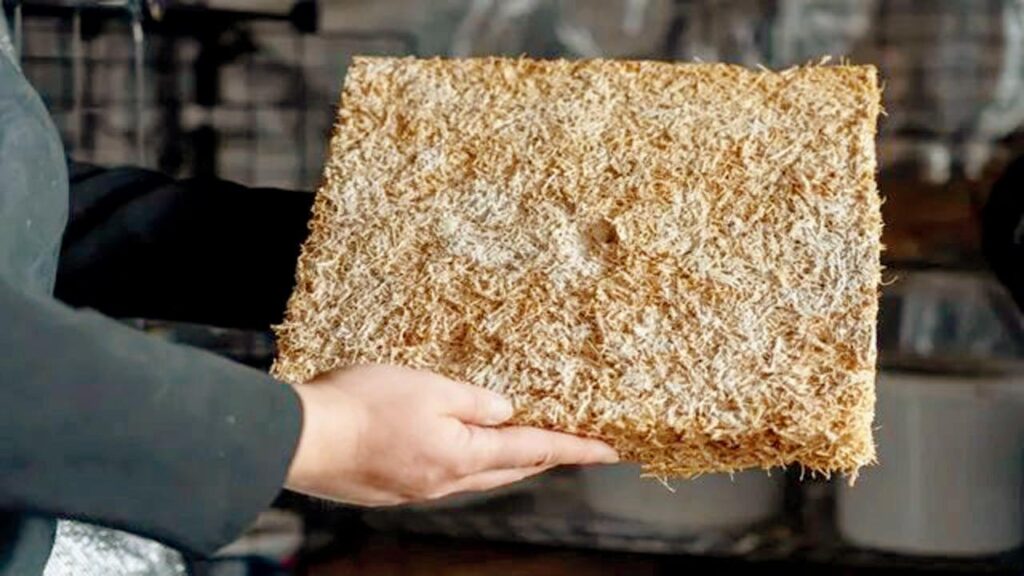Researchers in Germany have developed an innovative mushroom-based insulation material that offers a greener, compostable alternative to traditional synthetic building materials. This new material also has the potential to capture carbon, contributing to environmental sustainability.
The project, named Mycobuild, is being led by the Institute for Circular Economy of Bio: Polymers (ibp) at Hof University of Applied Sciences. The team aims to scale the production of mushroom mycelium boards from a laboratory setting to industrial manufacturing by 2026.
Unlike conventional insulation materials, which often rely on synthetic or mineral components produced through energy-intensive processes with a poor environmental footprint, these new panels are grown using fungal networks. According to project leader Professor Robert Honke, the mushroom-based insulation meshes are compostable, store CO2, and require significantly less energy to produce compared to fossil-based insulating materials.
Additionally, the panels are flexible in shape and can be produced at an industrial scale, making them a promising sustainable alternative for the construction industry.
*Disclaimer: This story has been sourced from a third-party syndicated feed. Mid-day accepts no responsibility or liability for the accuracy, reliability, or dependability of the content. Mid-day management reserves the right to alter, delete, or remove content at its sole discretion without prior notice.*
https://www.mid-day.com/news/world-news/article/fungi-based-insulation-boards-that-absorb-co2-developed-23595149

